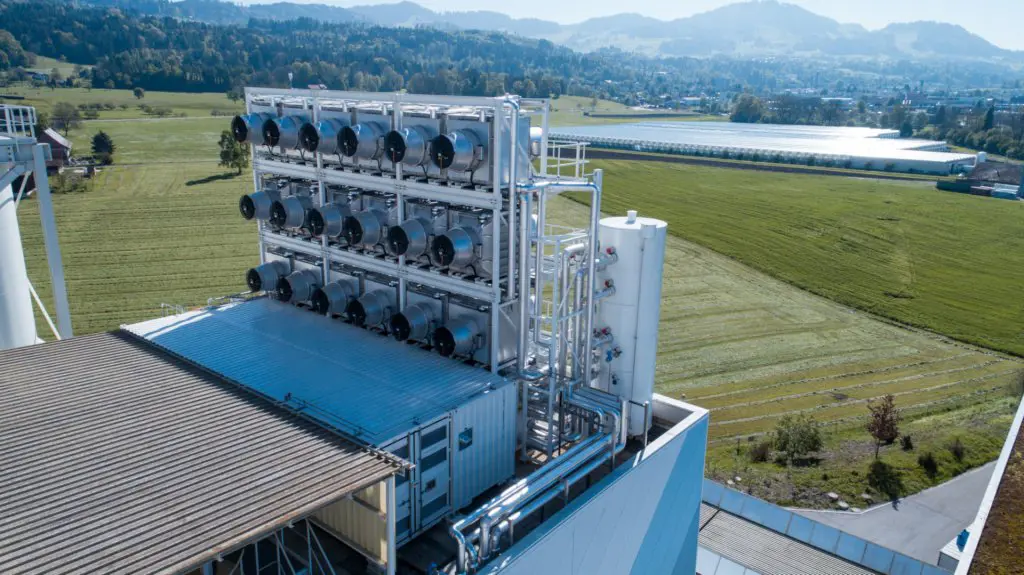TNO announced this month a demonstration plant that can do exactly that by 2030. The plant will extract CO2 from waste gases, water and air, while using green electricity.
The technology TNO (Netherlands Organisation for Applied Scientific Research) has announced and is working on is in essence not a solution to plastic soup. Plastic that ends up in the environment as waste continues to cause the same damage, whether it is made from CO2, or from fossil resources. Nonetheless, Plastic Soup Foundation is enthusiastic about this perspective, provided the world gets a few things right.
Co2 from the air: expensive but necessary
The international climate panel (IPCC) sees taking CO2 out of the air and storing it as a necessary means to keep warming below 1.5 degrees. Techniques to extract CO2 from the air, known collectively as Direct Air Capture and Storage (DACS), are in development and some are already being used. Swiss company Climeworks, for instance, extracts CO2 from the atmosphere which is converted into underground storage in the form of rock.
The big problem is that these techniques are still far too expensive. Who is going to pay for it and how? So, a market for plastic made from CO2 needs to be created.
One and One Is Two
Can application of DACS help solve two of the world’s biggest environmental problems? Plastic Soup Foundation thinks so. To put it simply, the following steps are needed:
- Determine internationally that, starting from a certain date, plastic should only be made from CO2 taken from the air. That would create a market for this type of plastic, which is expensive to make but helps remove CO2from the air. Sell it as climate net-positive plastic.
- This plastic should face no competition from cheap conventional plastic made from fossil resources, nor from recycled plastic. The conventional plastics should therefore be taxed to provide CO2 plastic the economic basis it needs.
- Only expensive and essential applications of CO2-based plastic will then be made. Indeed, the technology will prove far too expensive for single-use plastic and other plastic disposables. This automatically leads to much less waste.
So, what are we waiting for?
Photo: Climeworks’ DACS plant in Iceland.


.png)

